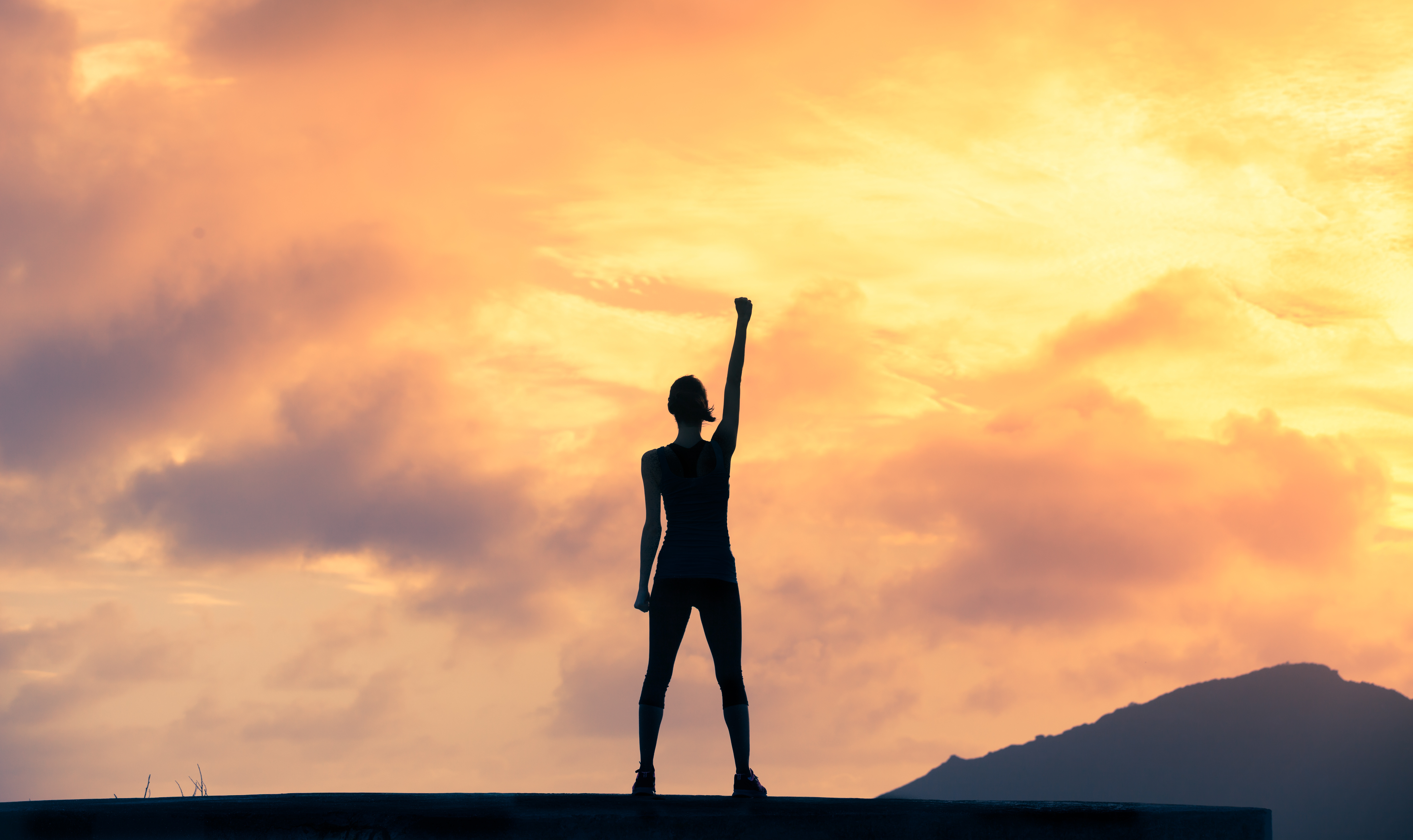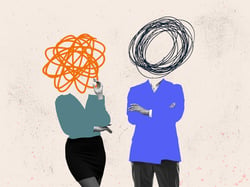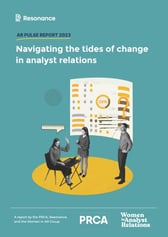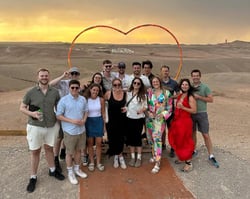5 min read
It needs to be International Women’s Day every day of the year
Claire Williamson : Mar 8, 2021 2:55:04 PM

The day has arrived, it’s International Women’s Day. On this day every year, women’s cultural, economic, social and political achievements are celebrated. It’s the day that we come together and make ourselves seen and heard, calling out inequality and injustice and calling for parity. Over the course of my career, the movement has been gaining momentum and I am proud to see women across the globe coming together in acts of sisterhood to achieve greatness on a daily basis.
When I look around, I see strong women everywhere and that is a powerful thing. It’s powerful because it gives me hope that my daughter is growing up in a fairer world, but we are still so far off the mark and I fear that the pandemic has set us back.
I could have written this blog in a million ways. The injustice that women face on a daily basis across the globe cannot be given the right focus in a blog post. Some women are living in silence and in fear, without remedy.
Across business and society, by enabling women to be seen and heard and to be part of leadership teams and decision making we see huge progress. And yet women are still absent and underrepresented in positions of power and influence. The recent UN Secretary General’s report illustrated the shockingly low figures with only one in four women being parliamentarians. ONE IN FOUR! Which means men are still calling most of the shots.
The pandemic has a gender bias too – frontline and health sector workers, caregivers, they are all getting a hammering and their pay is not equal. My personal experience of the pandemic has been navigating through a mist of uncertainty, with my number one priority to keep the team informed, motivated and happy, all while supporting clients and ensuring they have the best possible experience and service while we all live out lockdown after lockdown. Thank goodness for the incredible people on our team, our awesome clients and being in a robust sector. This added responsibility has been saddled on top of home-schooling children, cooking, cleaning and keeping them entertained. There’s certainly not been much time for self-care.
At the beginning, I noticed men cancelling meetings to help with childcare responsibilities, but not many women doing the same. Imagine if I cancelled an important meeting at the last minute because my child needed some attention – as a man, people’s response is “that is amazing, what an incredible dad” as a woman, the response is “seriously, get your act together”. It might not be said, but there’s unconscious bias seeping through every element of our lives and it is causing women a world of pain as the plates often spin off into our paths. At the end of this blog, I’ve added some shocking stats that brings home the set-back women have had during this time.
But let’s put this in context. Living in the UK and being a white, educated female, I am privileged. I am one of the lucky ones. And yet, even though I sit at the top of privilege relative to many, my state education combined with my gender has not laid the smoothest of paths. And it is unconscious and sometimes even conscious bias that means I feel it to my core, from the beginning of my career to this present day.
Early in my career, I remember sitting in an analyst briefing and one of my male colleagues using me as an example of how light the kit was. He looked at me and said that even I could lift it. Now at that point in time, I was pretty serious about triathlon and my fitness, but that’s not the point. The point is, WTF.
There was another time a journalist, during training a handful of 20-something females, described how to write the perfect press release using the analogy of the perfect blow job. Another time a previous male boss commented on my figure-hugging skirt. Another time a male colleague squeezed my leg and left his hand there far too long. Another time a male tried to sabotage my promotion by providing shocking feedback because he was sexist and intimidated (luckily, I had an awesome female boss who called it). The list could go on forever.
For a long time, the mansplaining, the interruption and the not listening angered me. It happened very recently, to the point that I – with 20 years’ experience in my professional field – started questioning myself. Juggling the home-schooling, the additional feeding and cooking, led my brain to its negativity bias and imposter syndrome snuck in. It was shocking. The difference was that this time, I called it out. I had the wisdom and the strength to complain. it’s not a complaint I ever want to make again – it will happen though.
The way that women support and look out for each other, gives me the strength to talk about my experiences and stand up to challenge things that are not right. My daughter came to me the other day slightly anxious about returning to school and the playground. She’s a force and I see that as a positive. As long as there is kindness and an understanding of fair, alongside an engrained moral code, I want her to continue being a force. But she was worried, because one of her classmates – a girl – told her pre-lockdown that she was “sensitive”, and this word was used as a weapon. We have to work with our girls to turn the tide on using words associated with weakness in women. She’s been called it all, bossy, sensitive. She’s eight years old and she is developing unconscious biases against her own gender. I say, be who you are, be self-aware, own it and make a success from it. Stick to kindness, fairness and your morals, be self-aware, but be who you are.
In the last few years, as International Women’s Day has gained momentum, it is clear that this, quite frankly, bad behaviour is happening all over and while that is not good, we are drawing strength from our networks and we can fight this battle together. There also seems to be an acknowledgement and acceptance coming from the top down that certain behaviours need to be stamped out.
So why the headline – it can’t be one day a year that this is talked about seriously, that this turns into a PR exercise for corporates. This has to be 365 days a year effort from everyone. This coming together of strong, powerful women needs to shake those old boys’ networks and their conscious and unconscious biases to their core.
So folks, here at Resonance and within our network of incredible female clients and partners, we are ready to call out the bullshit.
COVID-19 impact on women
Today's report highlights how the COVID-19 pandemic has proven to be a major challenge for gender equality:
-
Member States recorded a surge in domestic violence: For example, the number of reports on domestic violence in France increased by 32% during the first week of the lockdown, in Lithuania by 20% in the first three weeks. Ireland saw a fivefold increase in domestic violence orders and Spanish authorities reported an 18% rise in calls during the first fortnight of confinement.
-
Women were at the frontline tackling the pandemic: 76% of healthcare and social-care workers, 86% of personal care workers in health services are women. With the pandemic, women in these sectors saw an unprecedented rise in workload, health risk and challenges to work-life balance.
-
Women in the labour market were hit hard by the pandemic: Women are overrepresented in sectors that are worst affected by the crisis (retail, hospitality, care and domestic work), because these jobs cannot be done remotely. Women also had more difficulties re-entering the labour market during the partial recovery last summer 2020 with employment rates rising by 1.4% for men but only by 0.8% for women between the second and the third quarter 2020.
-
Lockdowns have significant impact on unpaid care and work-life balance: Women spent, on average, 62 hours per week caring for children (compared to 36 hours for men) and 23 hours per week doing housework (15 hours for men).
-
A striking lack of women in COVID-19 decision-making bodies: A 2020 study found that men greatly outnumber women in the bodies created to respond to the pandemic. Of 115 national dedicated COVID-19 task forces in 87 countries, including 17 EU Member States, 85,2% were made up mainly of men, 11.4% comprised mainly women, and only 3.5% had gender parity. At the political level, only 30% of health ministers in the EU are women. The Commission's task force for the COVID-19 crisis is led by President von der Leyen and includes five other Commissioners, three of whom are women.



 "The intricacies of the data-driven landscape is written into the DNA of Resonance. We are built for the data economy."
"The intricacies of the data-driven landscape is written into the DNA of Resonance. We are built for the data economy.".jpeg?width=250&height=181&name=AdobeStock_565367297%20(1).jpeg)
 "In Tech PR we have a front row seat to the changing technology landscape. From Generative AI to Quantum, it's our job to insert our clients' voices into the narrative"
"In Tech PR we have a front row seat to the changing technology landscape. From Generative AI to Quantum, it's our job to insert our clients' voices into the narrative"



 "In a world where the only constant is change, how do tech brands stay one step ahead of the market? That's where Resonance comes in"
"In a world where the only constant is change, how do tech brands stay one step ahead of the market? That's where Resonance comes in".png?width=219&height=219&name=Seb%20Moss%20wavelength%20thumbnail%20(1).png)

 "Resonance is a group of technology, business and communications experts"
"Resonance is a group of technology, business and communications experts"

